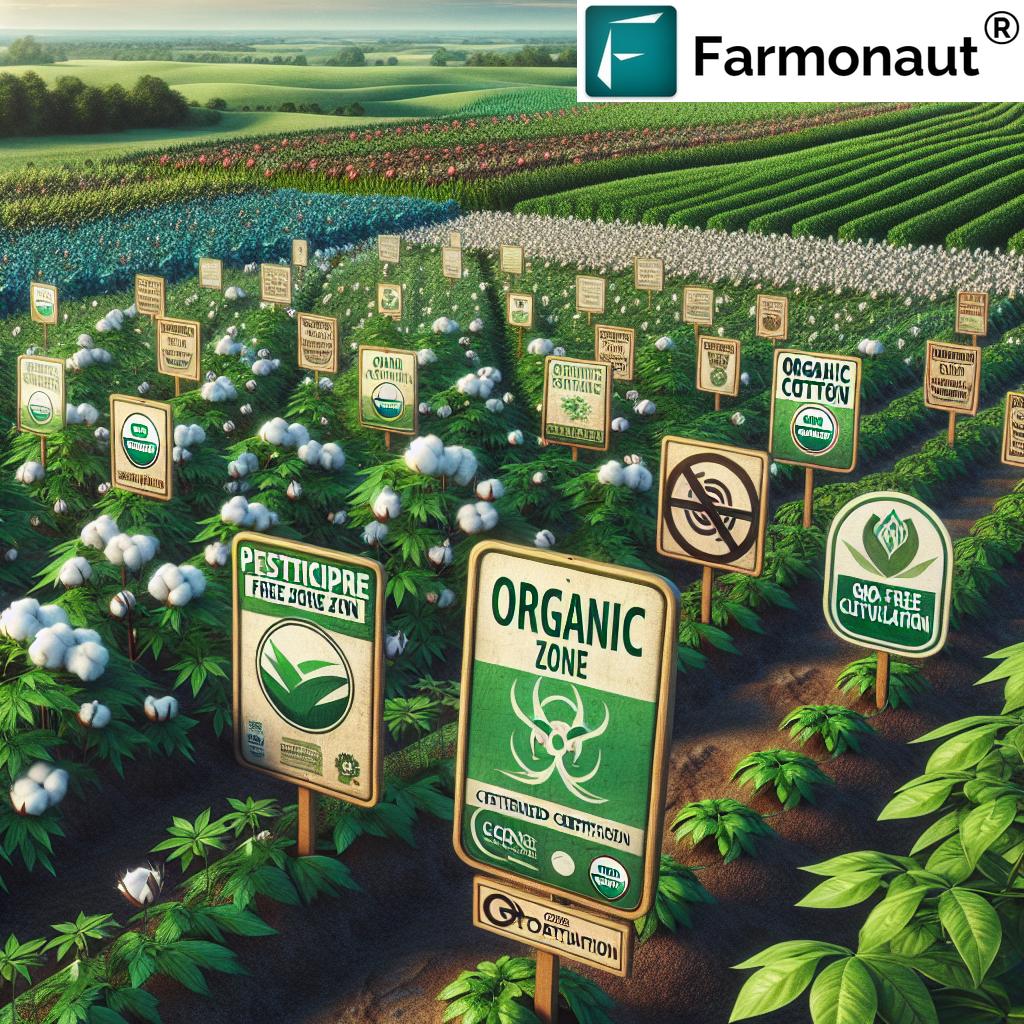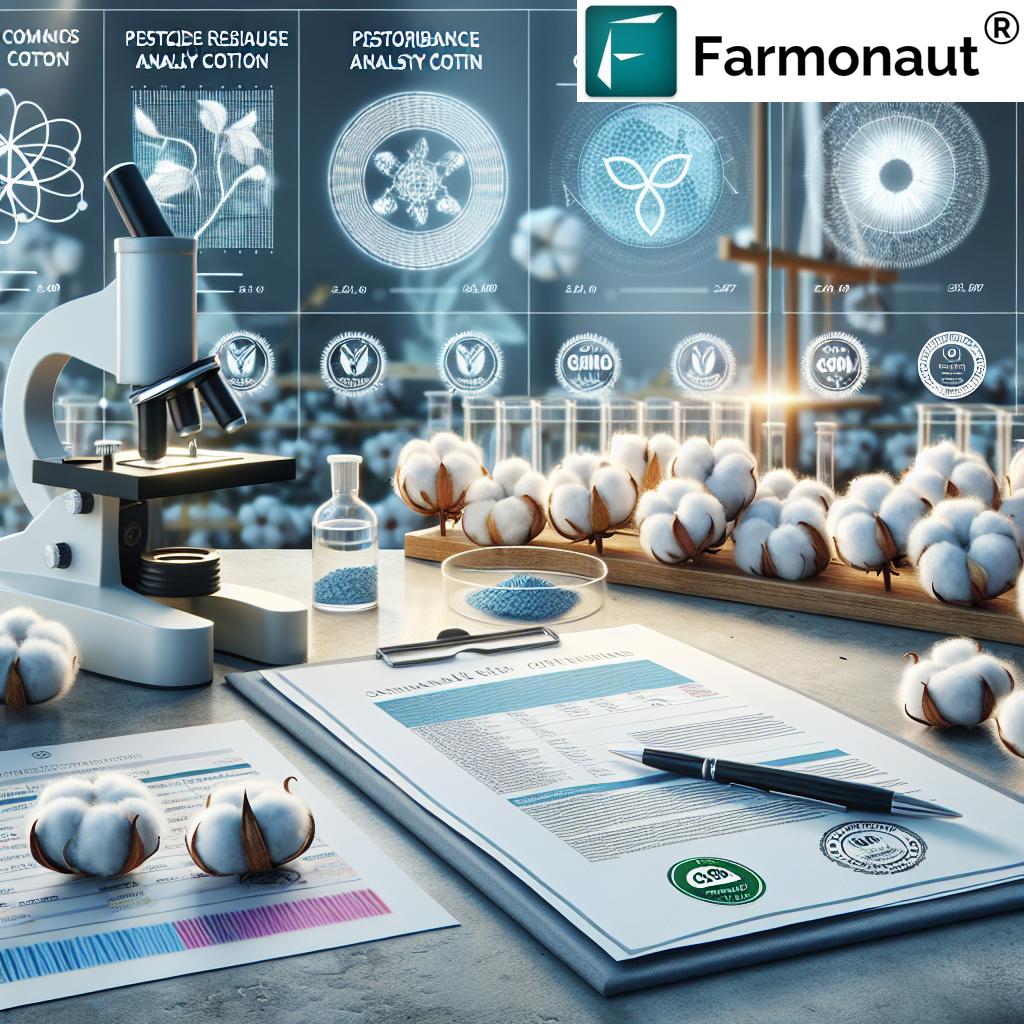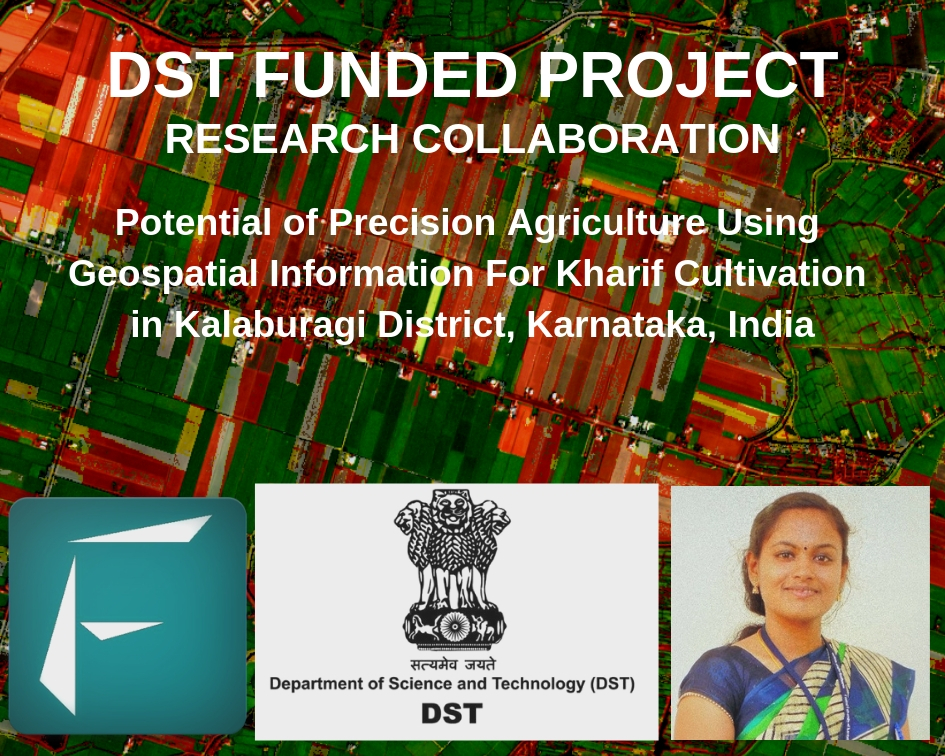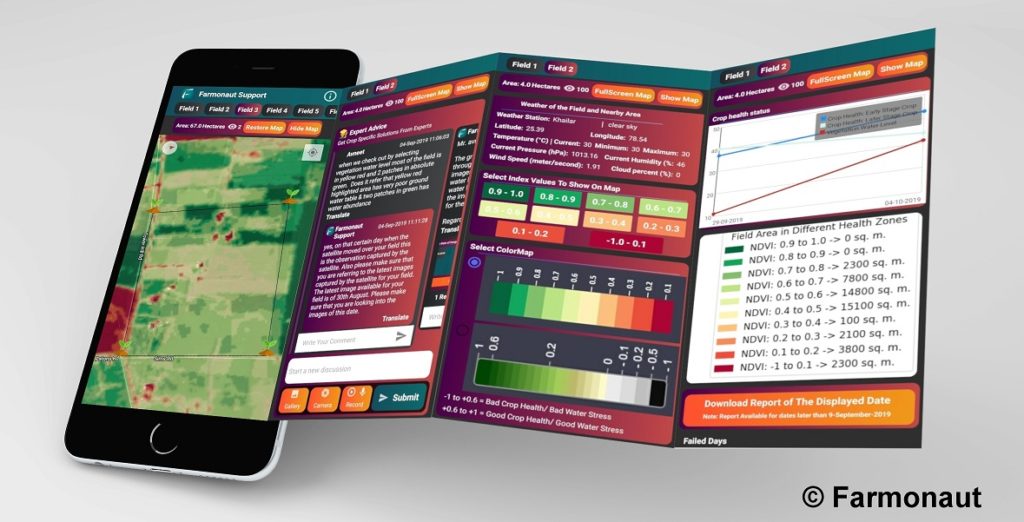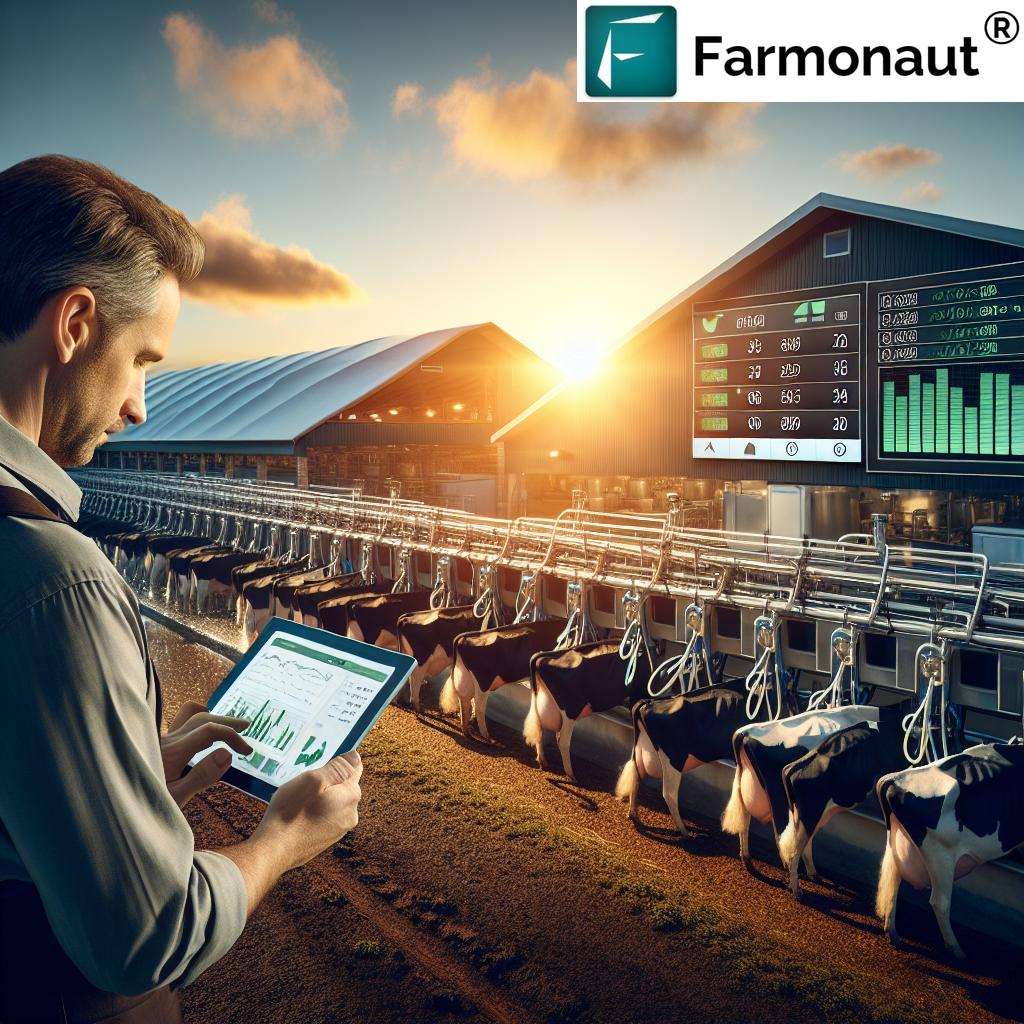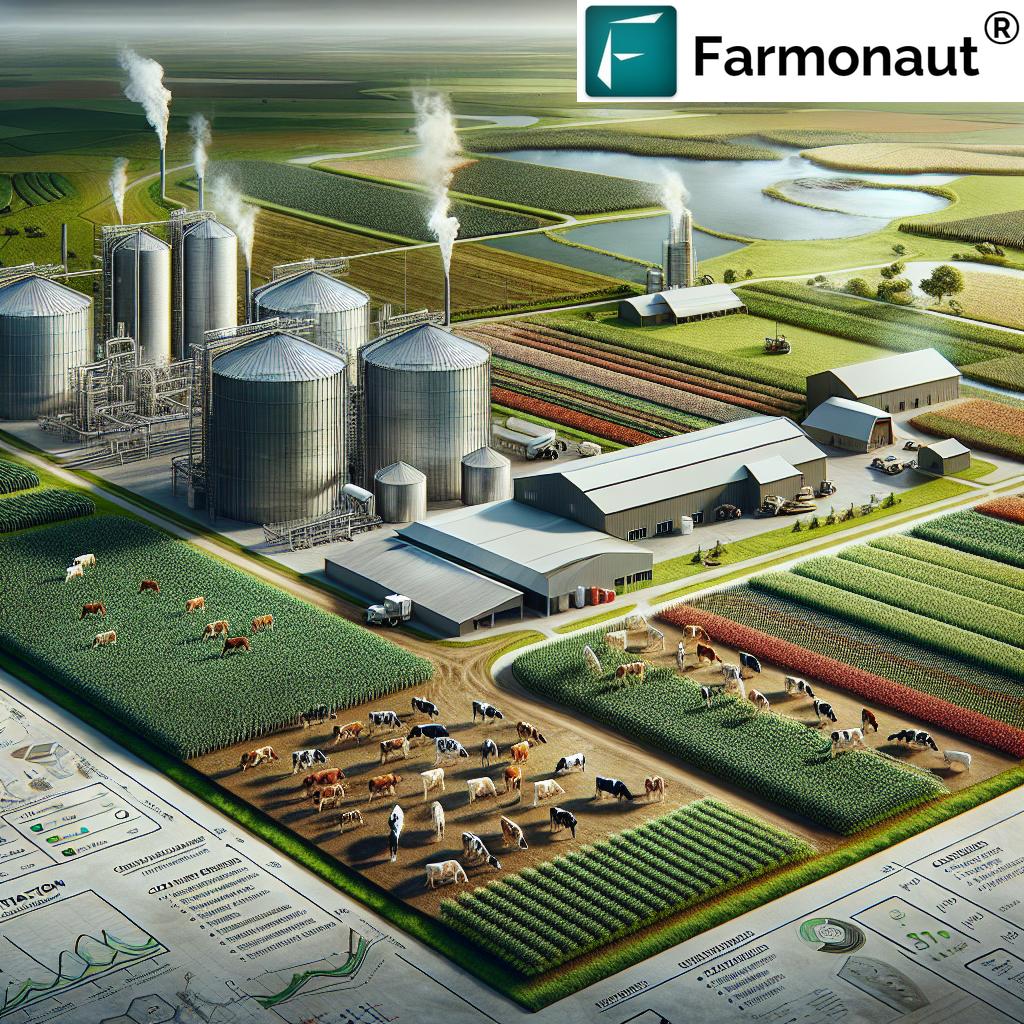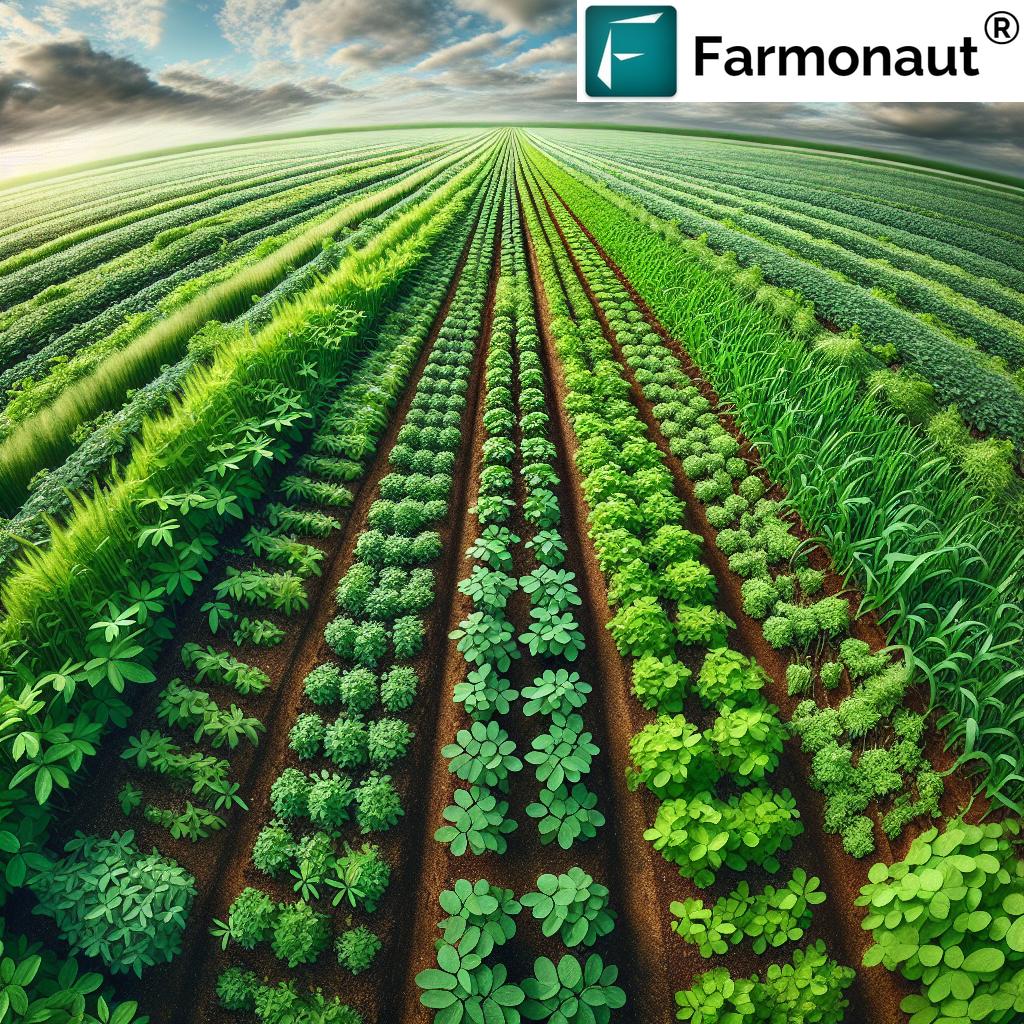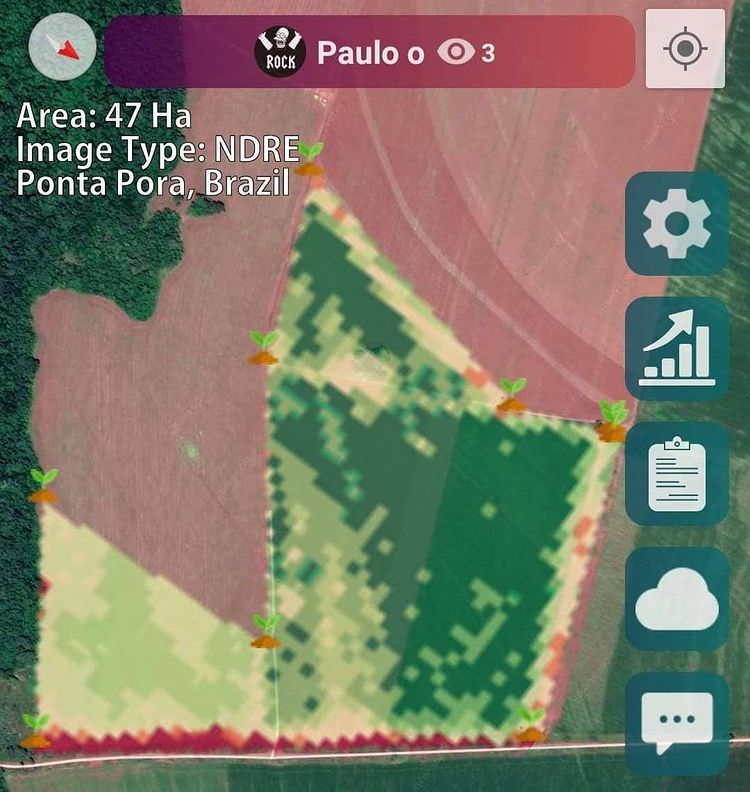Table of Contents
- Introduction: Why Organic Cotton Testing Matters
- Trivia: Organic Cotton Testing Facts
- Understanding Organic Cotton
- The Importance of Organic Cotton Testing
- Key Components of Organic Cotton Testing
- Visualizing Organic Cotton Testing
- Certification Standards and Bodies
- Comparison Table: Organic vs. Conventional Cotton
- Watch: Organic Cotton & Traceability in Action
- Challenges in Organic Cotton Testing
- Traceability in Organic Cotton and How Technology Helps
- Participatory Guarantee Systems (PGS) for Organic Cotton
- Farmonaut’s Role in Cotton Testing & Traceability
- Conclusion: A Sustainable Path Forward
- Farmonaut Subscription & Pricing
- Frequently Asked Questions
Organic Cotton Testing: 5 Secrets Experts Won’t Tell You!
Organic cotton testing stands as a critical component in today’s agricultural, farming, and forestry sectors, ensuring that every product labeled “organic” adheres to the most stringent standards from soil cultivation to the final product. Whether we’re farmers, brands, or consumers, understanding these hidden aspects empowers us to champion a more sustainable and transparent global textile industry.
In this in-depth guide, we unveil five expert secrets behind organic cotton testing—covering everything from the invisible trace of pesticides and GMOs, to world-leading certification standards like GOTS, and breakthrough technologies ensuring true traceability in the organic cotton supply chain. Our journey will also explore sustainable farming practices, soil and water quality assurance, and reveal how advanced platforms like Farmonaut are revolutionizing how organic integrity is maintained from farm to fabric.
Understanding Organic Cotton
Organic cotton refers to cotton cultivated without synthetic pesticides, fertilizers, or genetically modified organisms (GMOs). Instead, our focus is on nurturing crops with natural methods—like crop rotation, beneficial insect introduction, and organic compost—to maintain soil fertility and control pests. By doing so:
- We significantly reduce pollution—protecting surrounding farms, rivers, and wildlife.
- We conserve valuable biodiversity—promoting a healthier, more resilient environment.
- We minimize farmer and consumer exposure to toxic substances.
- We support healthier communities with every step of the production chain.
This stringent approach is why organic cotton testing and its related certification standards are vital. Without such rigorous oversight, the integrity of every “organic” label would be compromised.
The Importance of Organic Cotton Testing
As the demand for organic textiles continues to rise, so does the potential for fraud and mislabeling. Organic cotton testing is thus our frontline defense—helping assure that the cotton marketed as “organic” actually meets established criteria:
- Transparency: Independent testing creates an open trail of data that builds consumer trust and protects organic market integrity.
- Compliance: Without robust analysis, even trace elements of pesticides, GMOs, or other harmful substances could slip through the supply chain—invalidating certified claims.
- Market Value: Consistent, well-documented processes reduce consumer distrust and protect against market devaluation of organic cotton.
Ultimately, the testing process is about verifying absence—not just the non-use—of prohibited substances from soil to finished products.
Key Components of Organic Cotton Testing: The 5 Secrets
To protect both farmers and consumers, the organic cotton testing process is multi-layered. Here are the five secrets at the heart of world-class organic cotton certification standards:
-
GMO Detection in Organic Cotton
GMOs (genetically modified organisms) are strictly prohibited in certified organic cotton production. Using advanced DNA analysis, labs like Hohenstein , can now detect and quantify even the most minute genetic modifications in cotton fibers—down to less than 1% presence. This not only verifies accidental contamination from conventional farms, but also exposes intentional mislabeling in the supply chain.
- Key Insight: As per GOTS certification standards, presence above a strict threshold instantly disqualifies a cotton batch from organic status.
-
Pesticide Residue Analysis in Cotton
Organic regulations demand that cotton is completely free from synthetic pesticides and harmful fertilizers. Through state-of-the-art laboratory analysis, even trace residues—measured in parts per billion—are identified and flagged. This level of testing ensures that compliance is strict, and only truly organic cotton makes its way into the market.
- Example: GOTS requires regular pesticide screening at both field and product levels, forming a cornerstone of organic integrity.
-
Soil and Water Testing for Organic Integrity
The soil and water used in cotton farming are as critical as the cotton itself. Continual testing ensures there’s no contamination from neighboring conventional farms and that our farming practices are actually improving soil fertility and water quality each year. Buffer zones, water sampling, and soil nutrient analysis are all part of our regular protocols.
-
Traceability in Organic Textiles: Chain of Custody
A truly organic product needs more than just clean cotton—it needs a clean supply chain. Traceability involves:
- Documenting every step from farm to finished product
- Certification bodies performing regular audits to prevent loss of organic identity
- Implementing blockchain and digital recordkeeping for greater transparency (Explore Farmonaut’s blockchain-based traceability solutions)
Without this, the organic label would be easily compromised in the tangled web of global supply chains.
-
Continuous Monitoring & Auditing of Cotton Farming Practices
Certification is not a one-time process; it’s ongoing. Regular audits, surprise inspections, and digital monitoring—often via advanced platforms—ensure that both large and small farms are consistently maintaining the highest standards for organic cultivation and processing.
Certification Standards and Bodies for Organic Cotton
Not all certifications are created equal. To reliably protect organic cotton supply chain integrity, the world’s leading certification bodies have developed strict criteria and protocols. Here are the three gold-standard systems:
-
Global Organic Textile Standard (GOTS):
- Recognized as the world’s leading processing standard for textiles made from organic fibers
- Sets high-level environmental and social criteria—including at least 70% organic fiber content in finished textiles
- Mandates regular testing for pesticide residue, GMO detection, worker safety, and environmental protection in processing
-
Organic Content Standard (OCS):
- Managed by Textile Exchange, focused on verifying organic material content and tracking chain of custody
- Suited for brands seeking proof that a defined percentage of their product comes from certified organic cotton
-
OEKO-TEX® ORGANIC COTTON (OEKO-TEX):
- Guarantees no GMOs, pesticides, or other harmful substances throughout the supply chain
- Supports sustainable cotton production and traceability from farm through finished textiles
Compliance with these leading standards (GOTS certification standards, OCS, or OEKO-TEX ORGANIC COTTON) reassures global consumers that what they buy is both genuinely organic and sustainable.
Comparison Table of Organic vs. Conventional Cotton Testing Standards
| Testing Parameter | Organic Cotton (Compliance Rate / Typical Results) | Conventional Cotton (Compliance Rate / Typical Results) |
|---|---|---|
| Pesticide Residue (parts per billion) | 99% pesticide-free, strictly tested for over 180 chemicals; certification revoked on detection |
Approx. 40% pesticide-free, routine use of synthetic pesticides permitted |
| GMO Presence | <1% tolerance; rigorous DNA detection; certification lost if thresholds exceeded |
Up to 90% GMOs in major producing regions; little to no restriction |
| Certification Requirements | Annual, stringent audits; compliance with global standards (GOTS, OCS, OEKO-TEX) | Basic quality or no certification required; limited testing |
| Traceability Levels | Full chain of custody tracked with blockchain or manual records; from farm to shelf |
No unified traceability system; difficult to verify origin and production process |
| Soil & Water Quality Testing | Regularly tested for contamination and nutrient profile; part of certification process | Not required; soil and water often degraded by intensive chemical farming |
| Use of Synthetic Fertilizers | Strictly prohibited | Commonplace; no prohibition |
| Carbon Footprint Monitoring | Frequently monitored for sustainability (see Farmonaut’s service) | Rarely or not tracked |
| Worker Health & Social Standards | High priority in organic certification; regular audits on health and safety | Varies widely; no comprehensive oversight |
Watch: Organic Cotton & Traceability in Action
Challenges in Organic Cotton Testing
Even with advanced methods and global standards, real-world cotton farming involves challenges:
- Cross-Contamination: Organic fields risk contamination from neighboring conventional farms via pollen drift, shared water, or untraceable synthetic substances. Buffer zones and careful resource management are essential.
- Complex Supply Chains: The textile industry often shuffles cotton through dozens of hands—from farmer to processor to brand. Maintaining audit trails, chain of custody docs, and digital traceability all require constant vigilance.
- Cost of Certification: For smaller farmers, the burden of annual audits, regular testing, and compliance with certification bodies can be steep, threatening the inclusive growth of the organic sector.
That’s why digital and participatory solutions are becoming key in making organic cotton certification accessible and reliable for everyone.
Traceability in Organic Textiles: Reinforcing Integrity from Soil to Product
Traceability is not simply a trend but the foundation of ethical, transparent organic cotton supply chain management. Here’s how advanced traceability systems work:
- Farm-to-Consumer Visibility: Each batch of cotton is assigned a unique identifier, tracked at every step—from the farm, through processing, spinning, weaving, dyeing, and finally to the finished product.
- Blockchain Advantage: Digital ledgers (like Farmonaut’s blockchain-based traceability) ensure data is tamper-proof, transparent, and open for real-time audit by brands or consumers.
- Supply Chain Transparency: Digitally recorded chain of custody prevents fraudulent mixing and boosts consumer trust.
If you’re a corporate client in textile, fashion, or food sectors, integrating such traceability protocols isn’t just about compliance—it’s a reputational and operational asset.
View Developer Docs for Full API capabilities
Participatory Guarantee Systems (PGS) for Organic Cotton
Participatory Guarantee Systems (PGS) offer an accessible, community-driven alternative to third-party organic cotton certification—especially powerful in local and short supply chains. Here’s what sets PGS apart:
- Stakeholder Involvement: All players—farmers, local buyers, technical experts—collaborate to inspect, assess, and guarantee the organic integrity of each batch.
- Cost Efficiency: PGS eliminates many high certification fees, making compliance practical for small-farm production.
- Focus on Trust: Reliance on social networks and transparency means the process values relationships, mutual education, and continual improvement. Learn more at the PGS Wikipedia page.
While PGS systems currently support mainly local or regional markets, they are a vital step towards scaling true sustainability and inclusiveness in the global organic cotton industry.
Farmonaut’s Role: Modernizing Cotton Testing & Sustainable Supply Chains
As the complexity of organic cotton supply chain increases, technology is the enabler that bridges the gap between rigorous testing, certifications, and global traceability. Here’s how Farmonaut is driving this transformation:
- Satellite-Based Crop Health Monitoring: With real-time satellite data, Farmonaut enables farmers to monitor soil health, disease pressure, vegetation indices (like NDVI), and water requirements—leading to precision agriculture that both increases yield and upholds organic standards.
- AI-Based Jeevn Advisory System: Personalized crop management recommendations help optimize pest-control practices and fertilizer usage, supporting organic cotton farming practices.
- Blockchain-Based Product Traceability: Secure, digital tracking assures every stage of the cotton’s journey is transparent, minimizing risk of fraud and supporting global supply chain integrity. (See Farmonaut Traceability Solutions)
- Resource Management & Carbon Tracking: Farmonaut’s Carbon Footprinting tools allow us to measure, report, and reduce the environmental impact of cotton farming—enabling data-driven sustainability journeys.
- Fleet and Supply Chain Management: For larger agribusinesses, Farmonaut provides digital oversight on logistics, harvest, and transportation—ensuring no breakdown in the chain of custody.
Our solutions are accessible via Android, iOS, web app, and API—so every farmer and business can participate in next-gen organic cotton certification and traceability.
Large-Scale & Plantation Farm Management with Farmonaut
Satellite-Based Verification for Crop Loans & Insurance
AI-powered Crop Plantation & Forest Advisory by Farmonaut
Conclusion: A Sustainable Path Forward
The journey through organic cotton testing is a testament to what we can achieve when modern science meets authentic sustainability values. As responsible stewards of earth’s resources, we must continue to prioritize:
- Strict adherence to global organic standards (GOTS, OCS, OEKO-TEX®)
- Rigorous testing protocols—from GMO and pesticide detection to soil and water analysis
- Digital supply chain traceability for consumer trust and market integrity
- Embracing innovative, inclusive systems like Participatory Guarantee Systems for organic cotton
- Leveraging technology (like Farmonaut) for affordable, scalable, and actionable farm management
This is how we build a future where every meter of organic textile stands for real health, sustainability, and trust.
Farmonaut Subscription & Pricing
Ready to transform your farm or textile business with real-time crop monitoring, supply chain traceability, and sustainability analytics? Farmonaut offers affordable subscription plans for individuals, agribusinesses, and government bodies—accessible via web, Android, iOS, and API.
Get Started With Farmonaut Today!
Frequently Asked Questions (FAQ) about Organic Cotton Testing
1. What exactly is tested during the organic cotton certification process?
Organic cotton is tested for absence of GMO contamination (using advanced DNA analysis), pesticide and synthetic fertilizer residues, soil and water quality indicators, and social/environmental compliance. Certification bodies conduct both on-site audits and laboratory tests before approving organic labels.
2. How does traceability in organic textiles protect consumers and brands?
Traceability systems ensure that every step—from cotton cultivation, harvesting, and processing to the finished textile—maintains organic integrity, making it virtually impossible for conventional or contaminated fibers to enter the supply chain undetected.
3. Why is GMO testing important in organic cotton farming?
Since GMOs are prohibited in organic production, even minimal contamination can revoke certification. GMO testing guarantees the absence of genetically modified organisms, thus upholding the purity and market trust in organic cotton.
4. What is the role of Farmonaut in supporting organic cotton farmers and industries?
Farmonaut empowers farmers and businesses with satellite-based crop health monitoring, AI advisory systems, blockchain-enabled supply chain traceability, and resource management tools. These solutions help maintain organic standards, support sustainable practices, and deliver transparency from farm to final product.
5. Are small-scale farmers able to access organic certification affordably?
Yes, via Participatory Guarantee Systems (PGS), which provide a locally-focused, trust-driven alternative to expensive third-party certification—making organic standards and certification practical for farmers worldwide.
6. Where can I learn more or get started with Farmonaut?
Access Farmonaut’s tools via the web app, Android, or iOS app, or visit API documentation for developer integration in your workflow.





